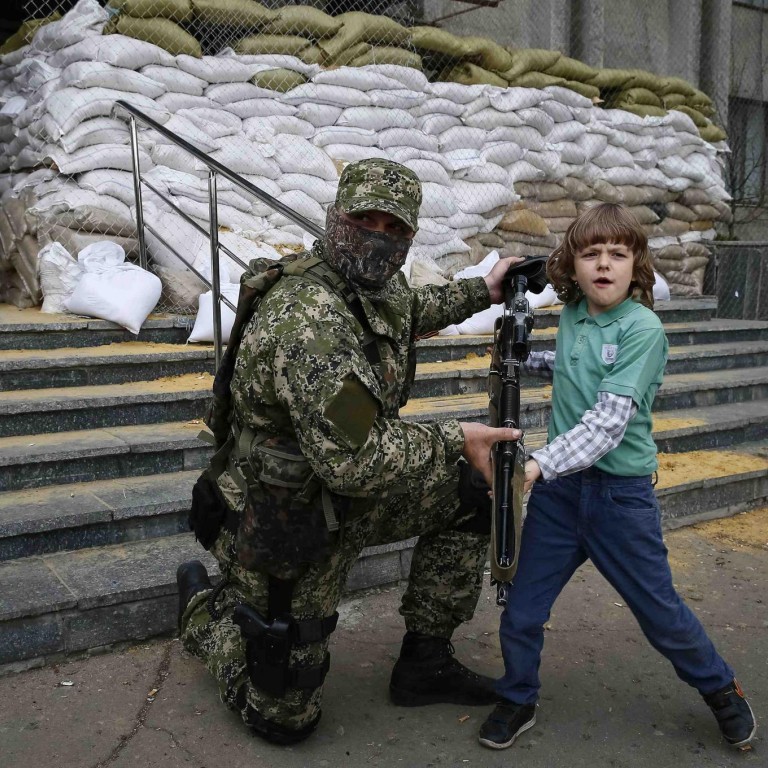
Putin ready to be patient to achieve his expansive goal in Ukraine
Russian president knows pushing too fast to extend nation's borders could backfire
Russia's decision last week to sign a peace accord on Ukraine does not mean that the Kremlin is backing down. It means President Vladimir Putin is prepared to be patient in pursuit of his ultimate objective.
That aim is one day to reunite Russian-speaking peoples - including those living within the borders of Ukraine - within one common home, Putin's own reflections and those of people with similar views to indicate.
As a skilled tactician, Putin knows that to push too fast to achieve this ambition could be damaging for Russia, as demonstrated by the Western threat of tough sanctions and Europe's rush to wean itself off Russian gas supplies.
Signing the four-way agreement on Ukraine in Geneva last week, and thereby showing the West that it was willing to compromise, made tactical sense for Russia.
With another four years before he needs to seek re-election, and the strong chance of winning another six-year term after that, Putin can take his time, giving him an advantage over his Western rivals whose policies are driven by more short-term imperatives.
"Now the main thing is to keep the powder dry and be prepared for the eventuality that the crisis in Ukraine is going to last a long time," said Fyodor Lukyanov, editor of , a journal which has the Russian foreign minister on its editorial board. "Agreements will be broken and then made again. Russia, for once, is not on the defensive, it is advancing."
Putin's long game means he is unlikely to actively seek to involve Russia in an armed conflict over Ukraine any time soon.
But equally, it means that European states will have to adapt to a long-term future when persistent sanctions complicate their trade relations and Russian gas supplies.
The Kremlin's official objectives in Ukraine are limited: protecting Russia's own security, countering Nato expansion, and helping Russian-speaking residents of Ukraine if they come under threat of persecution. Russia denies any plans to invade.
Last week at Geneva's InterContinental Hotel, chief diplomats from Russia, the EU, the US and Ukraine signed a document calling on illegal armed groups in Ukraine, including the pro-Russia separatists occupying more than a dozen public buildings, to disarm and go home.
But one European diplomat expressed scepticism. By showing it was prepared to talk, the diplomat said, the Kremlin relieved the diplomatic pressure that was building.
"Talks and compromises are just part of his [Putin's] tactics," said the diplomat, who spoke on condition of anonymity and stressed he was expressing his private opinion. "He wants to have Ukraine."
Beyond the standard, official Kremlin line on its objectives in Ukraine, evidence has emerged of a more expansive set of aims.
On Thursday, during a question-and-answer session that was televised live, Putin at one point reflected on how during tsarist rule, large parts Ukraine belonged to Russia and were known as - literally, New Russia.
"All these were territories which were handed over to Ukraine in the 1920s by the Soviet government," he said. "Why they did that, God knows."

